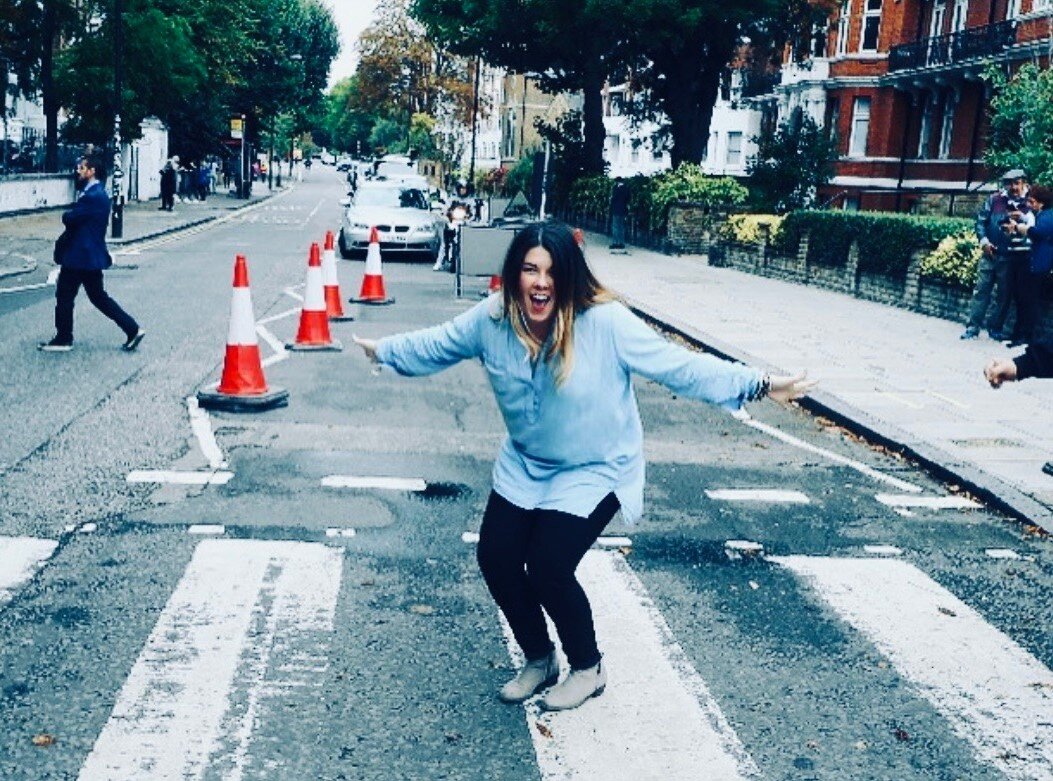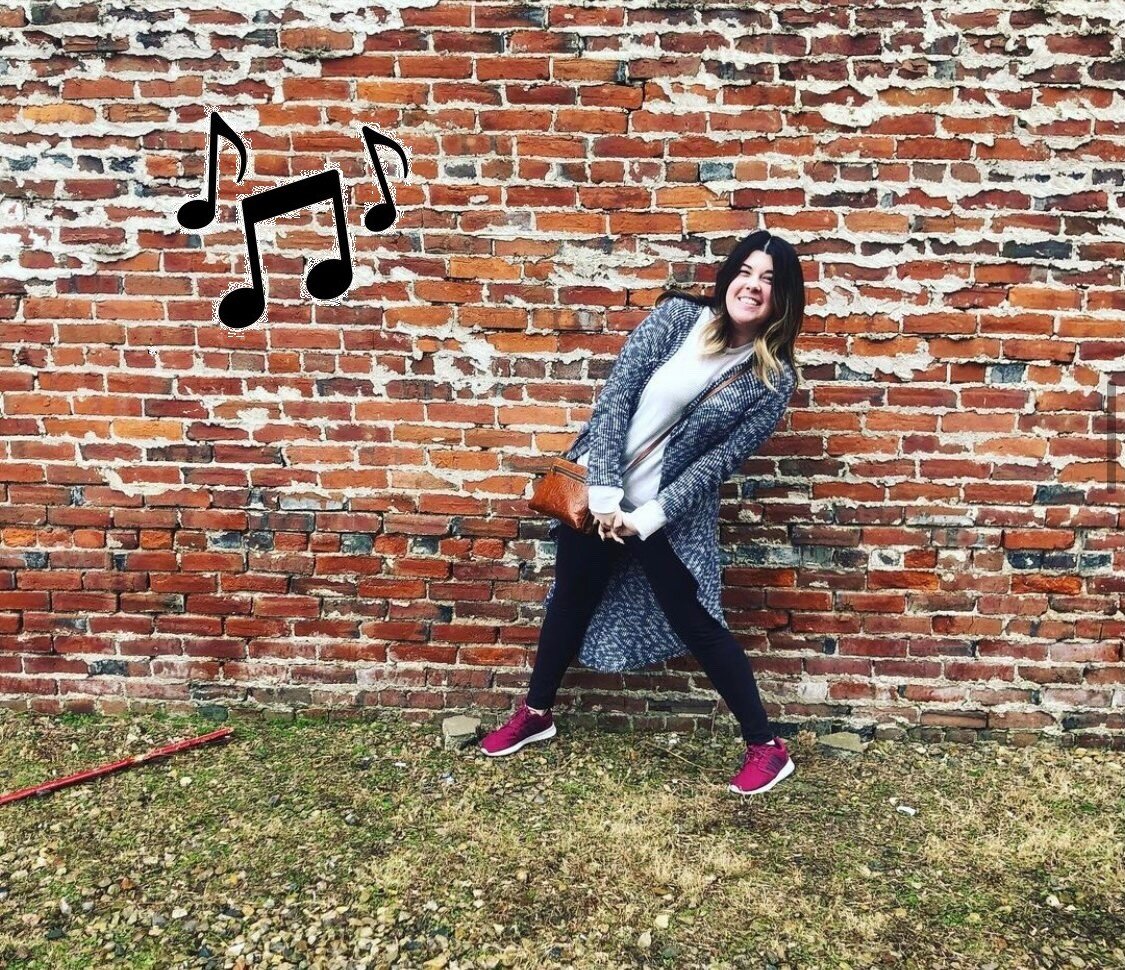
As diverse as the people of the world are, there are few things, in principle, that have the power to bring them together. The first example off the top of my head is sports. As I write this, there is an NFL game streaming in the background, with players of various backgrounds competing, and millions more people watching in person and on television. The language of food is another universal. In my city, you can find an ethnic restaurant for nearly every major people group in the world. I have observed that even the people most reserved toward other cultures are highly outgoing when it comes time to consume their food. The third item, which arguably belongs atop any list of its kind, is music. Music, as they say, transcends language. It also transcends the human race. Humans are not the only species to create music, and we may not even be the best at it (birdsong, anyone? lol). While musical taste is a dime a dozen, music itself is notorious for its universal appeal.
This week, I reached out to my friend and former classmate, Makayla Briggs, to shine a light on the ancient art. Makayla is an artist, singer, and musician. Her talent and passion for music is common knowledge to everyone who knows her. (Makayla recently threw a fancy “Sad Girl Fall Party,” complete with red wine, elaborate charcuterie, and lavish desserts to celebrate the drop of Adele’s new album “30”). Makayla, in simple terms, is the ideal person to do this interview. While I’ve attended her performances in the past, this is the first time we’ve had an in-depth conversation on the topic. The following is the account of a live 90-minute interview conducted in person. The interview begins with a personal narrative and progresses to addresses a number of fascinating questions about music in general. FYI, you can find Makayla on Instagram @MBriggs2_
[For the complete archive of interviews, click here.]
Tell the people a little about yourself.
My name is Makayla Briggs. I am 28 years old. I am the Music Director at East Side Grace Brethren Church, and I sell solar panels. I think church is where my love for music kind of sparked. Church gave me an opportunity to get more involved. I love country music, but I can say that I appreciate most music that’s made. I sing, and I play piano and the guitar.
I have a dog—Penny Lane—that I love so much. I’m a foodie. I like to host. Charcuterie is life.
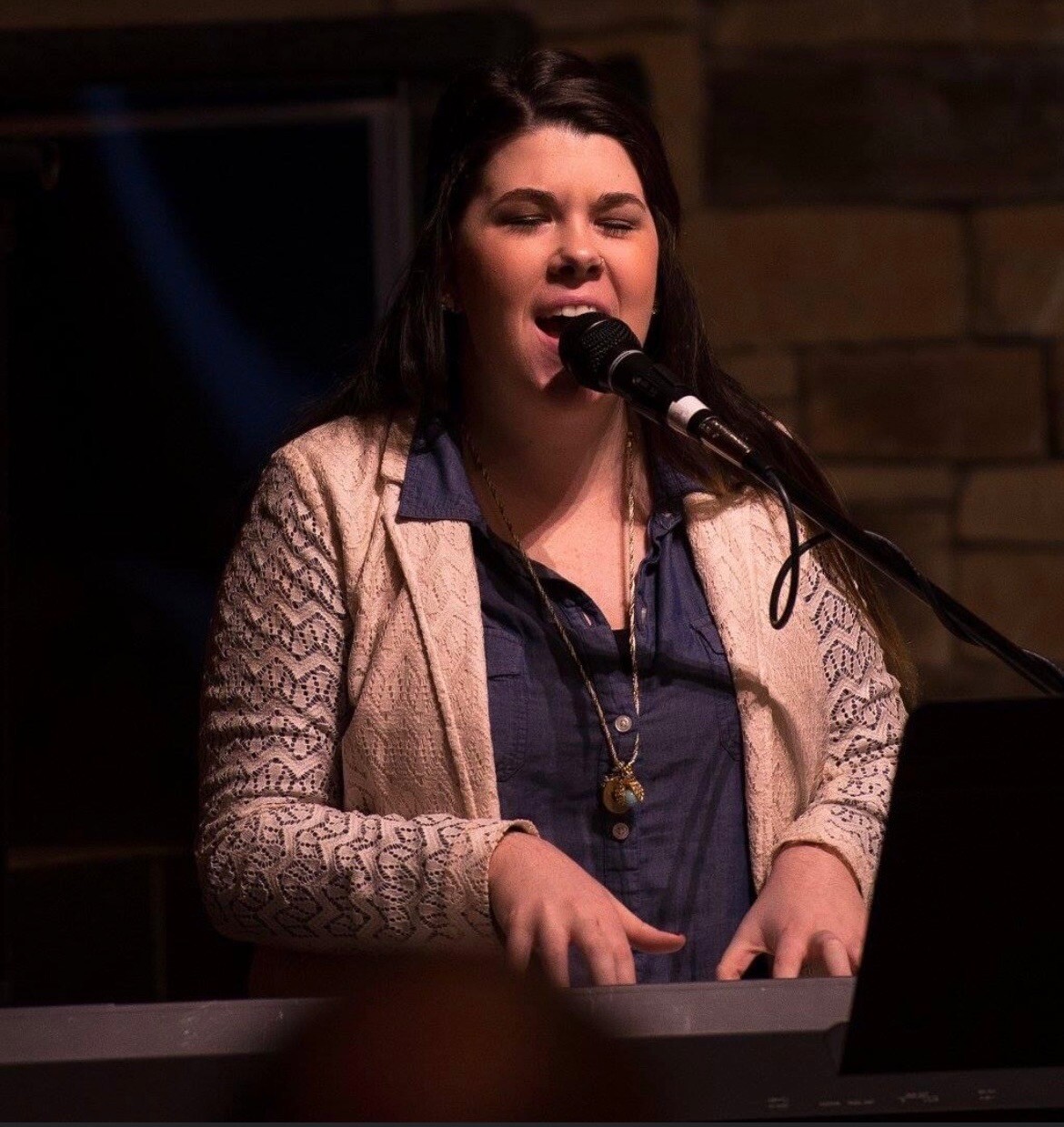
When did you realize you had a passion for music?
I would say I realized I had a passion for God before I realized I had a passion for music. Music was my way to express my love for the Lord. As far as my passion for music, I’d say I knew when I was probably 18. After high school, I planned to play volleyball in Kentucky and study God-knows-what, because music for me at the time was still just a hobby. I was singing in praise bands, and I would write little heart-break songs, but it wasn’t a huge thing in my life. I was entertaining the idea of studying something like accounting or social work.
It wasn’t until I got out of high school that I thought, “You know what? This is for me.” And more so, I realized that worship is more my passion than music. So now, in my adulthood, I have developed this love to create and consume music.
Did you end up going to school for it?
I went to Valor Christian College and graduated with my associate’s. At Valor, I studied Praise and Worship Leadership. I worked as a music intern for a year and a half, and put together band, vocalists, and worship sets. I’m super thankful for my time there because I got to study under Lisa Brunson. She absolutely changed my life. After graduating, I moved to the teeny-tiny town of Culloden, West Virginia, to join the staff at Grace Life Church as the Creative Arts Director. The church had a space for me to stay, and I was living there while working part-time as a barista at Starbucks. After 6 months, I needed to get out. Living, working, and attending worship at the same place was suffocating. I rented an apartment nearby, while continuing to work at the church.
I left Starbucks and got a job as a receptionist at a hair salon, which I loathed. I could just not vibe with the people I worked with. I wasn’t their type of creative. It was terrible. It probably didn’t help that it was a high-end salon, from the clientele to the people who worked there. I am not a boojy person. I’m approachable and down-to-earth. I felt I stepped into a world I didn’t feel like I belonged in. My boss, however, was one of the most amazing people I have ever met. Her name was Joy, and she lived up to her name. Joy passed away recently due to cancer.
After I left the salon, I started teaching pre-school music. I was going through a difficult end to a relationship, and my pre-schoolers just brought me back to life. I’m super thankful for that season. I’m thankful, really, for my entire 2 years and 8 months in West Virginia. It was my first “big girl” job. I had a lot of learning and growing to do as a musician and worship leader, and my church family was super gracious. Pastor Wright had way more confidence in me than I had in myself. He encouraged me to learn the piano and step out in other areas.
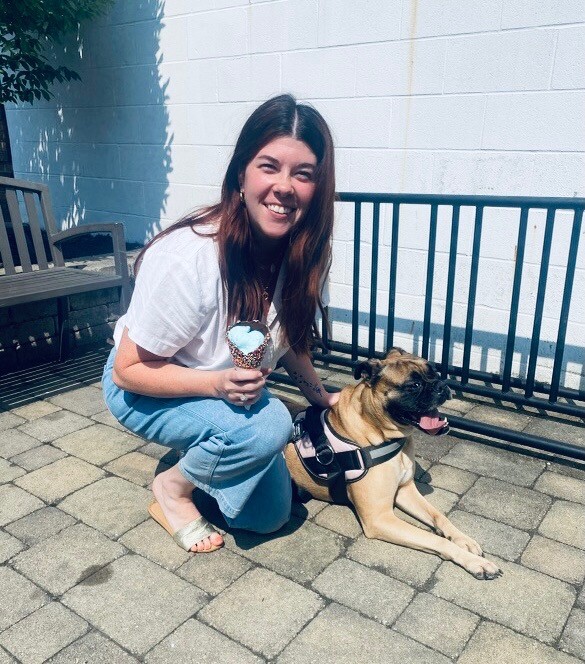
What prompted you to leave West Virginia?
I decided in 2019 that it was time to go back to school to get my bachelor’s. I attended Ohio Christian University [OCU] and studied vocal performance. My experience at OCU was amazing. It was there that I got introduced to classical music. Prior to that, I had never really been able to genuinely appreciate it—not just to listen, but to understand. I think sometimes you just listen to listen, but it’s a difficult ballgame when you’re listening to understand music.
My advisor’s name was Doctor Nolte. He is the reason why I went to OCU, and the reason why I graduated. He was on top of everything, and just super great at his job. Dr. Nolte cared about his students and their successes. He saw us through one lesson after the other, and always made sure we were where we needed to be.
My vocal coach, Dr. Bennett, was such a talented lady. I was 27 and had been singing since I was 9, but I had never taken vocal lessons before. I found out I had been singing wrong my entire life. It wasn’t that I was singing bad, necessarily, but my technique was non-existent. I recall that when I was living in West Virginia, I would get hoarse after every single worship set. We would sing three, maybe four songs, which is not a ton. That would only be a ton if you were singing classical music, because some of those pieces are 20 minutes long. Dr. Bennett changed the way I was singing. I’ve been hoarse one time ever since, and that was because I had gotten sick and still needed to sing anyway. Dr. Bennett changed my life, for sure.
I remember attending your graduation recital in the spring of 2021. Can you tell the people about that?
Part of my graduation requirement was to do a recital. The goal of the recital was to show what I had learned during my time there and capture a piece of me, musically speaking. I performed a German piece, a French piece, and several English pieces, as well as three additional theater pieces. I love musical theater. You get to be extra. I love being extra sometimes. And I did a song that I wrote, because I write music and wanted to show the audience a little bit about me. I also I did a worship set at the end, because worship is a huge part of my life.
I’ve thought about going back to get my master’s. It’s something that I really, really want to do, but I haven’t landed yet on if that’s what I’m going to do.
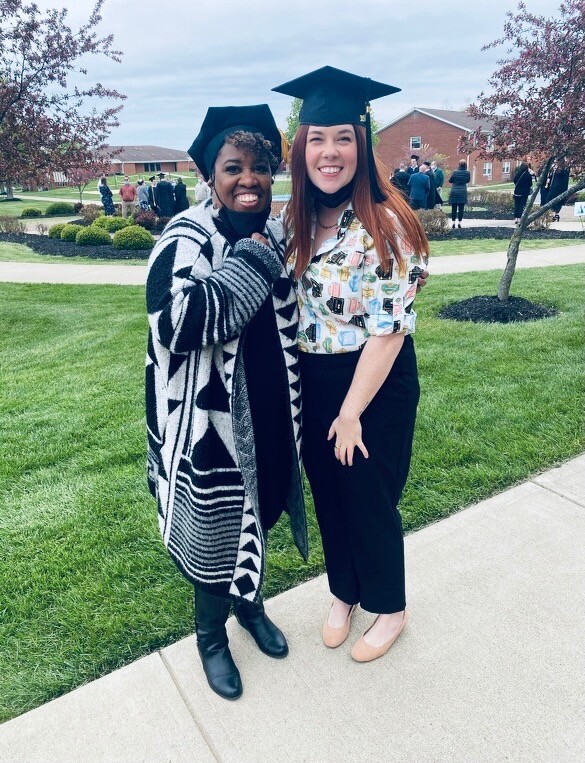
In what ways has your music ability or tastes evolved over the years?
Growing up, I wasn’t allowed to listen to secular music, but my dad, my sister and I would always watch “The Sound of Music” on Friday, and we would have pop and popcorn. The main actress, Julie Andrews, played a character named Maria. I would say that Maria is the one who got me into singing. In the movie, there is a lot of singing, and there is a lot of teaching on how to sing. Maria teaches the children that she’s nannying how to sing. They go over solfege, which is all of the notes of the key that you’re in. Do-re-mi-fa-sol-la-ti-do. Another exception was the Beatles. My dad would always have the Beatles on in his truck, but anytime we were with my mom, it was “Uplifting and encouraging 104.9 the River.”
Once I started listening to music for myself in my pre-teens, I started listening to country. I always loved country. Around middle-school-ish, I would listen to a lot of rap and R&B, because that is what was popular at the school I went to. When we played sports, that is what was on in the locker room, but I never listened to it for personal enjoyment. I only listened to it so I could sing with my friends and be a part of those moments. Throughout high school, my playlist was mostly country music.
I didn’t branch out until my early 20s. I started listening to jazz. I really like Americana now, as well. As I mentioned earlier, OCU has increased my ability to understand and appreciate classical music.
Why do you think music is so powerful? Have you ever tried to define it?
Have I tried to define it? No. But music—without bringing God into it–music can be a pastime, but that’s not why it’s powerful. I think it’s powerful because it connects people, for one. Also, there are emotions that not everyone can put language to. And music can do that. It can do that with words. Honestly, it can do that with instruments. What’s really cool about instrumental music is that you can make of it what you want to for yourself. You can feel out what it means for you without having words to contain it. Classical music, for instance, is powerful, but it will only be powerful to you if you let it. Some people will listen to it and think, “Eh, this is really boring.” But sometimes it melts me. Sometimes you’ve got lyrics in songs, and the artist decides the direction of the song. With instrumental music, you don’t have those barriers.
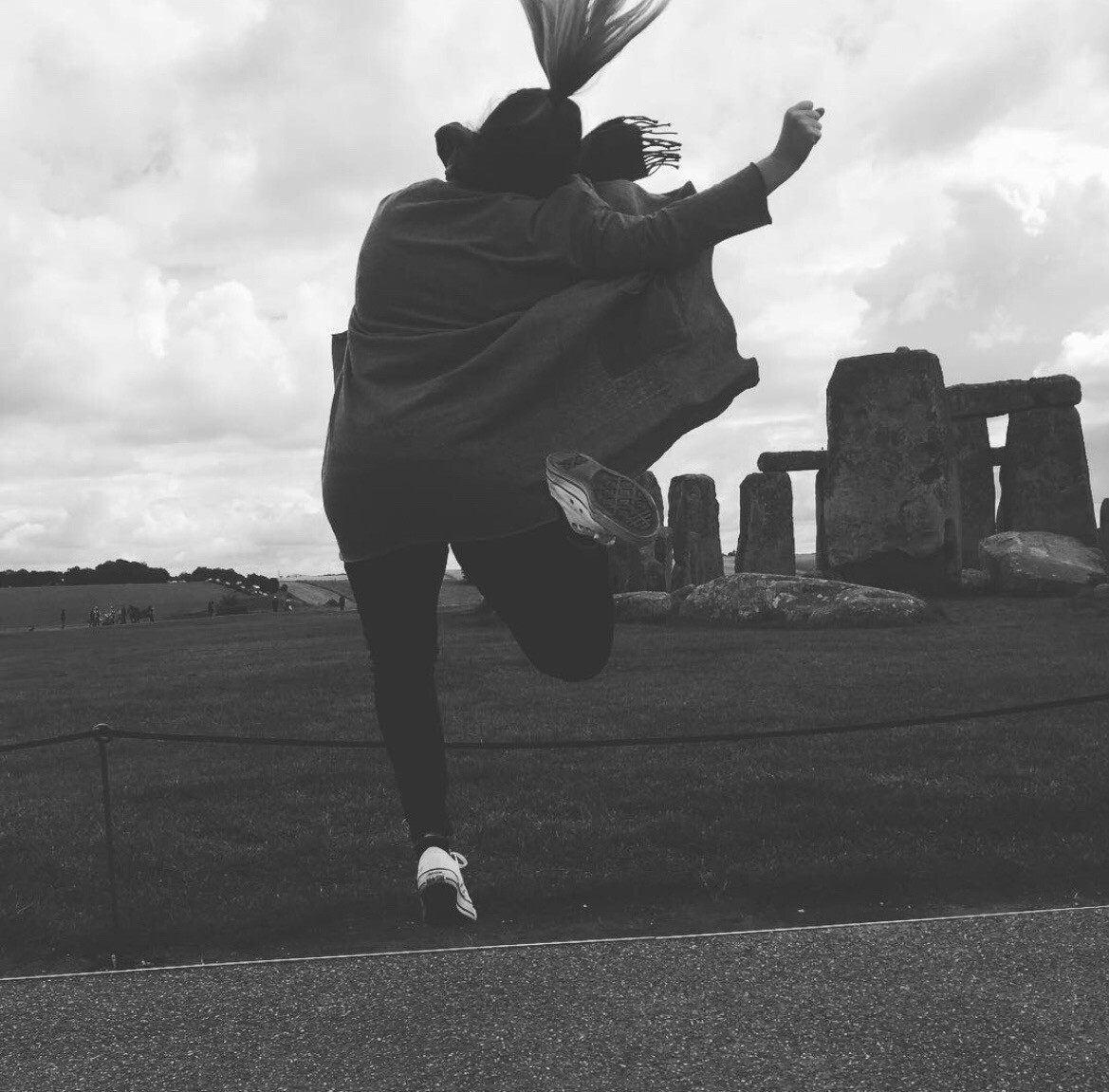
Can you talk about the relationship between music ability, on one hand, and talent and hard work, on the other. How much of it is God-given ability, and how much of it is human effort?
The Lord gives gifts, but how we steward those is completely up to us. That whole idea, you know, that our gifts are in our hands. The question is, “What are you going to do with what’s been given to you?” I think it’s more so the hard work. You get out what you put in. Music is no different. You do have those crazy people, like Mozart. They’ll just write and write and write. They literally were just given this crazy talent. Not to say that Mozart didn’t work. He was a child prodigy. He absolutely worked at his craft, but he was just insane on another level. In general, for me, though, it’s hard work over talent. Talent sparks the interest. “I’m good at this.” From there, it’s how you take care of your gift.
When did you discover your gift?
I doubt my gift all the time. I doubt I’m as good as some people think I am. I doubt I’m as good as I think I am. But I would say the first time I recognized I had talent was when I was about 13.
How much can a regular person expect to improve with practice?
I’m a very optimistic person. I think that you can do whatever you want to do. People can improve as much as they want to improve. Seriously, in the world that we live in, we have all the tools at our hands. If you want to sing, cool, then sing. Go to YouTube, and type in “free singing lessons.” The voice is a different instrument from guitar and piano. It is your body. It is your self. You grow that instrument based on how much you practice, which is the same as any other instrument. But with the voice, you just start. You just start singing, and you get to take that instrument with you wherever you go.
How much has your singing improved?
It’s super hard to give a solid, concrete answer to that because singing is an art. I don’t want to use terms like “better,” or “less bad.” I can’t say, “I was at a 4, and now I’m at a 6.” I can say that my range has grown over the years. Back in April, I sang the highest I’ve ever sang in public, and I had never sung in German before. The range shows improvement with effort, and I think the whole singing in German was just my willingness to do something different. I’m big on practice. I take my instrument with me wherever I go, and I’m always singing.
With music, there’s always room for improvement, whether that’s piano, the guitar, or vocals. That is, if you challenge yourself. Some people do the same thing their entire life. I like to try new things out, and then go back and refine.
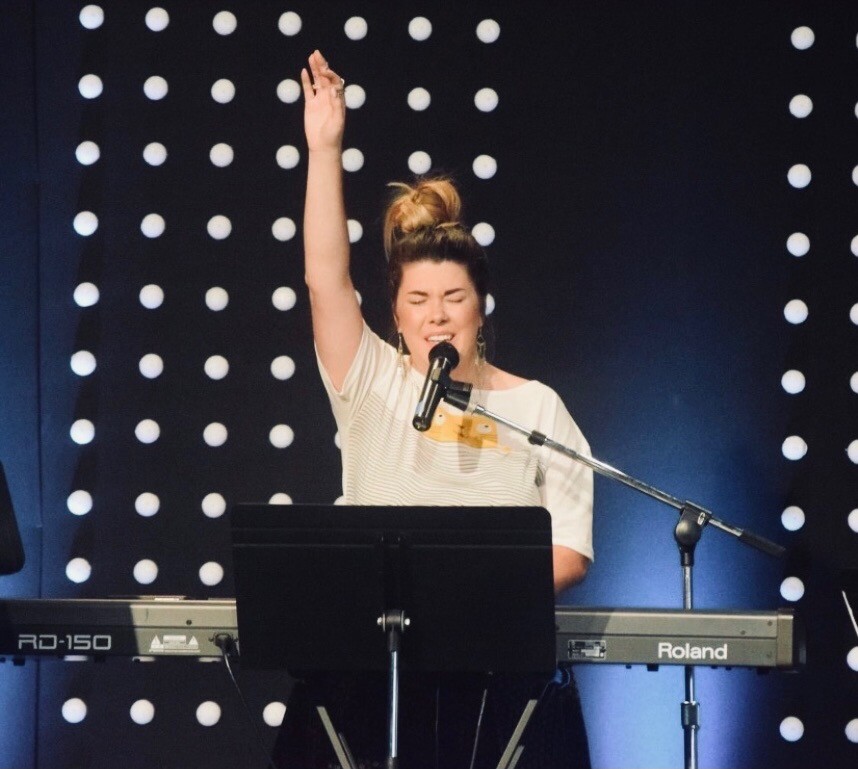
What do you do now?
Currently, I spend about 30 hours working at East Side Church. I lead worship. I choose the music and create arrangements for the songs we do on Sunday mornings. I direct our choir, band, and vocalists. I work with the children for events like the upcoming Christmas special. I’ll teach the children songs, and then I’ll meet with team members. One thing that’s really important to our church is treating people well and making sure we’re caring for others, so I have meetings with team members and members of the staff on a regular basis. That’s the part I get paid for musically. I also plan events because I love to bring people together.
Do you have anything music-wise currently in the works?
I am working on a project, which will be out next year. I’m actually working on two projects, which has been a struggle. I really want to release my second project, but I need to finish my first project first. I’m really good at starting things, but sometimes I fall short at finishing them. My first project is an EP that I’ve honestly just sat on for years. It’s not going to release itself. I’m going to release it, and when I do, I’m planning on having a little release party. There will be charcuterie and wine, and I’m going to play some of my music. The EP is called “Different.” It consists of 5 heart-breaky, you-done-me-wrong kind of songs. They’re kind of jazzy. They’re kind of country. They fall into the Indie genre, because they don’t wholly identify with a single genre.
My second project is an album. That will have more of a country feel to it. There’s a couple songs on there that I could hear on the radio. I’m not saying they will make it to radio, but they’re country-pop enough to be mainstream. My album is a little bit more fun than my EP. Right now, I have 11 songs that are completely written, ready to be recorded. With the EP, I’m in the production stage.
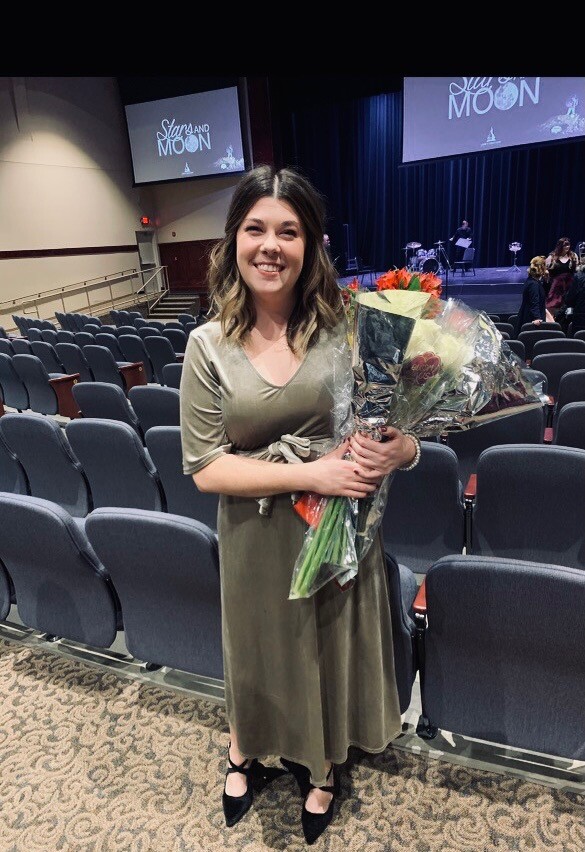
The connection between music and emotions is undeniable. Is there a genre or instrument you prefer when you’re feeling a type of way?
I will listen to Johnnyswim, one of my favorite bands. They’re so good. I love me some Adele. I love me some Taylor Swift. She gets a bad rap, and I hate that for her. To my mind, she’s one of the most talented songwriters of our generation—and I will back that statement until I die— because she’s able to say similar things in so many different ways. She’s mastered how to call the color blue by a different name, but she’s still talking about the color blue.
When I’m sad, I also go to my keyboard. I’ll typically start writing then. I like to pour a glass of mine, get my phone, and just record whatever comes out. I’ll revisit it later, put it on paper, and try to organize it a bit, so I can make it make sense for other people.
What’s your dream job or career in the music industry?
I would love to be an artist. I am an artist, but I would love to be a successful artist, where I’m writing my own music, and that’s paying my bills.
A lot of people like to comment on trends in the music industry over time. What stands out to you about music produced today? Where do you see the industry headed?
I’ll be the first to say that I’m no expert in music. I’m really not. But what I notice about current music is that there’s a lot of repetition, and that’s OK. Pop music, you kind of have to catch onto—that’s why it’s pop. People want to sing along to it. I would say music today is similar to music that’s from our past. Music that’s from 50 years ago or 20 years ago, which is really not a long time. New songs are being written, but nothing new is really being talked about, because we’re the same humans that walked the earth 70 years ago. We go through similar things and feel similar emotions, and that’s what we’re going to write about and sing about.
I definitely have my dislikes in music. Some music I don’t listen to because it makes me feel terrible, and I don’t like the direction of that music. As far as the future, I can’t say that I see us going any particular way than kind of how it’s already been going.
I’m a fan of technology. Can you comment on the influence technology has had on the music industry?
Technology has made music more accessible to us. We’re able to work on music at our fingertips, rather than getting an entire band together. We’re able to create what we need to by ourselves at our house, with no other musicians involved. There is a productiveness in that, but you lose relational aspects that music has to offer.
We might find that our music is more and more “in the box,” meaning, it’s not using real guitars or real violins. You get to press a button, and a “C” plays on the violin—or whatever. That’s kind of where we are now. I expect more of the same. The technology is going to continue to develop, as it has over the years.
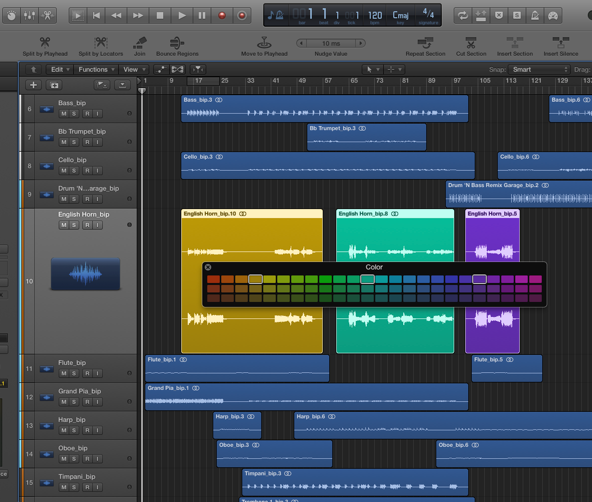
I’m going to ask you several questions in quick succession. You can limit your answers to no more than a few words or sentences.
Favorite artist?
My favorite songwriter is Taylor Swift. My favorite artist is Kasey Musgraves.
Favorite album?
“Diamonds” by Johnnyswim.
Favorite single?
“Unwritten” by Natasha Bedingfield.
Favorite karaoke track?
“We are never ever getting back together,” by Taylor Swift.
Genre, artist, album, or single you believe is overrated?
Rap music.
Most underappreciated instrument?
The trombone. There’s just so much life and amusement in it. It can be really powerful.
On a scale of 1-10, how much do you love Ohio?
7 and a half. Just put an 8. I do. I do love Ohio.
What country or city would you move to if you had to leave tomorrow?
Venice, Italy. I’ve been there, and man, it’s gorgeous. Venice for the views.
You recently threw a “Sad Girl Fall Party” to celebrate the drop of Adele’s new album. Where did you get the inspiration for that?
I heard a rumor in the summer of 2020 that Adele was working on new music that was supposed to be released last fall. The person said that “Sad Girl Fall” would be in full swing. It’s definitely not a term that I coined myself or was creative enough to come up with. I guess you can say I thought it was a very comical phrase. You have Adele, who writes sad music, and she’s dropping her music in the fall time. The music came out a year late, but since it was still in the fall, the name still works.
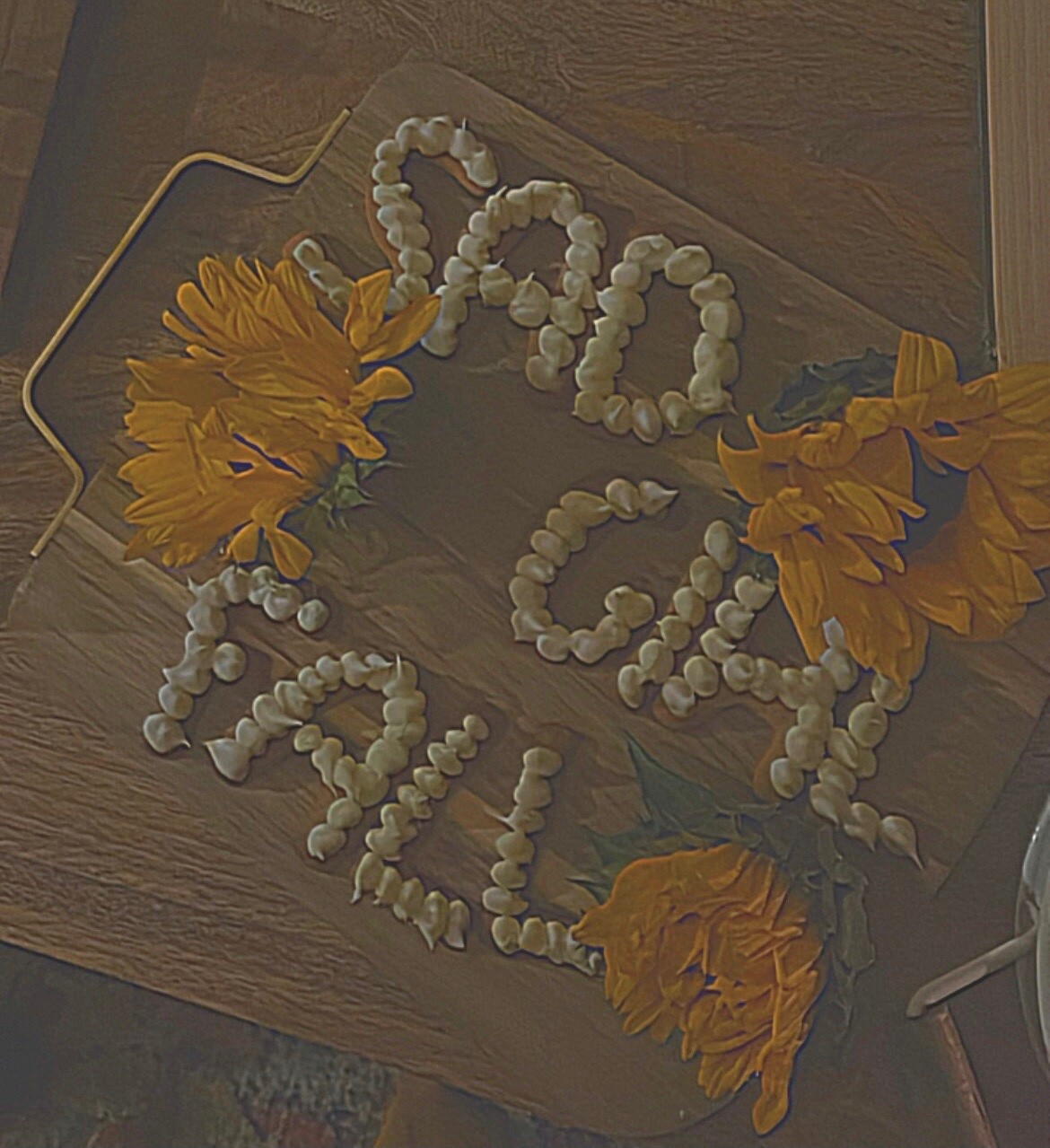
What’s next on the playlist for you life-wise?
I want to challenge myself with my current job at East Side Church. I want to put myself in situations where I’m outside my comfort zone. For example, I recently started directing choir, which is not my forte. I love it. Fake it ‘till you make it is a real thing. It works in some cases, and I feel like that’s one of them. But there is preparation involved, of course. There are times where I completely lack confidence, and I’ll just attack with all the fake confidence in the world. It gets me through.
I also want to be faithful to finish my projects. I mentioned that I have an EP coming out next year. That, right now, is the next big thing that is most important to me.
